Insight: Student housing helps Edinburgh Festival Fringe fend off accommodation ‘perfect storm’
and live on Freeview channel 276
As the Edinburgh Festival Fringe reached its final weekend after a summer of discontent last year, its biggest venue operators decided to sound the alarm over its future.
Eight of the biggest players in the world’s biggest cultural celebration joined forces to declare that the soaring cost of accommodation in the city had become the biggest threat to the future of the event.
Advertisement
Hide AdAdvertisement
Hide AdA drop in ticket sales of nearly 27 per cent compared to the Fringe’s record-breaking 2019 season prompted claims that artists and audiences were being “priced out of town,” and that the Fringe's very existence was in “very real danger.”
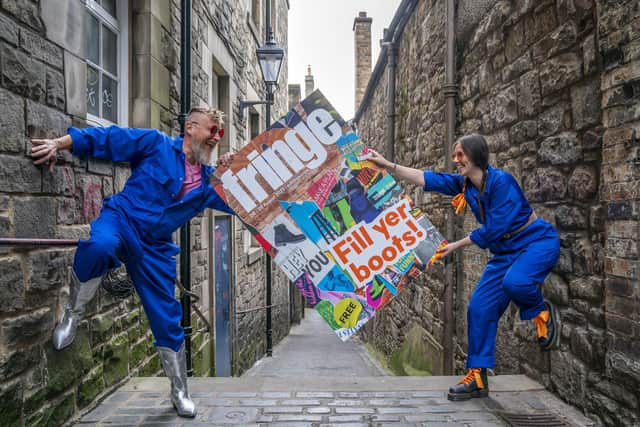

But when the festival bursts back into life this week, it will do so with more than 3600 shows and the second biggest line-up in its 76-year history.
A late flurry of more than 600 new shows have been registered since the official Fringe guide was published in early June with 3013 shows in its line-up.
An additional 28 venues have been confirmed for the Fringe in the last few weeks, with the overall tally of shows surpassing the 3548 figure from the 2018 festival in the last few days.
Advertisement
Hide AdAdvertisement
Hide AdThe late surge from Fringe companies and performers has come as demand for accommodation in Edinburgh in August is said to have returned to levels last seen in the city during the record-breaking summer of 2019, when the Fringe attracted a three million strong audience for the first time.
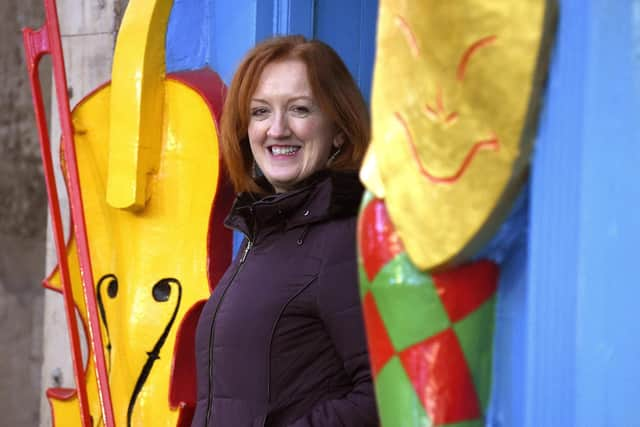

Edinburgh’s leading city centre hotels are able to charge between £1000 and £1500 for a two-night stay next weekend.
However an increase in the amount of student accommodation being made available to Fringe companies and performers is said to have eased the festival’s accommodation crisis this year.
Some student halls are still available to book for this year’s event, which officially gets underway on Friday, with two night stays available for two people.
Advertisement
Hide AdAdvertisement
Hide AdNew concerns about the possible impact of a shortage of affordable accommodation emerged in the results of a post-festival survey published by the Fringe Society.
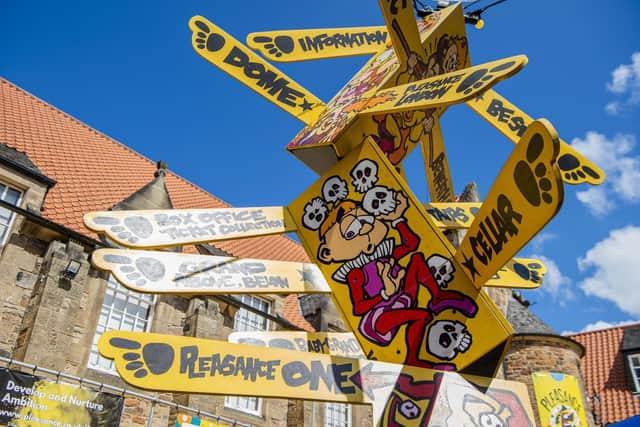

Around 87 per cent of artists polled in the wake of last year’s event felt that the affordability of accomodation and living costs in Edinburgh in August would be a barrier to their future participation at the event.
The charity, which oversees the festival, warned at the start of the year that the availability and affordability of festival accommodation had become a “perfect storm” for the 76-year-old event.
However, venues booking up student halls well in advance is understood to have kept the average price of those rooms down to around £40 per person.
Advertisement
Hide AdAdvertisement
Hide AdThis number of shows at this year’s Fringe is less than 300 behind the 2019 programme, which attracted an audience of three million to the event for the first time.
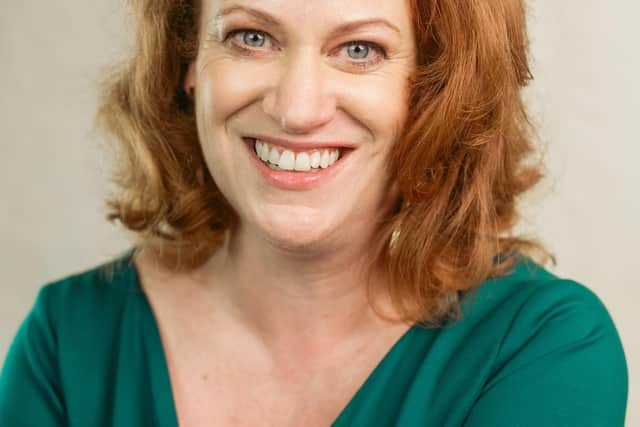

However Fringe Society chief executive Shona McCarthy played down the significance of the late surge, stressing that strong ticket sales for performers and companies were more important than the overall scale of the event.
She said: “We always say that we don’t judge the success of the Fringe by the number of shows that are on.
“For us, that’s more about people actually seeing and supporting work, audiences connecting with shows, and artists having a positive experience in Edinburgh.
Advertisement
Hide AdAdvertisement
Hide Ad“What’s really lovely is that we have 68 countries represented this year and the internationalism that has been at the heart of the Fringe is very much in evidence. We have 356 different shows from the United States alone."
London-based producer, writer and performer Emily Beecher has booked accommodation for 15 people working across three productions.
She believes prices have come down in recent months, particularly for student accommodation.
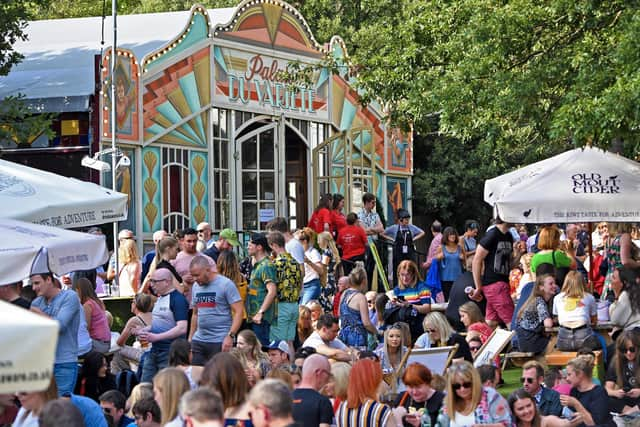

She said: “We’ve all been feeling the crunch this year. I think everybody was panicking at the beginning with the various announcements about accommodation.
Advertisement
Hide AdAdvertisement
Hide Ad"Some places were going on Airbnb at insane prices and were being booked up.
"Accommodation is definitely our biggest budget line and is costing more than £18,000 in total this year, which is more than £1000 per person. Some of the student accommodation we’re using is being supported by the venues at a much lower rate than what we’ve seen advertised.”
Pleasance artistic director Anthony Alderson admitted the venue had gambled on the level of demand to take part in this year’s Fringe by advance booking much more accommodation for artists and companies than normal.
He said: "We took a decision early on to take on much more accommodation ourselves on behalf of performing companies than we would have done previously.
Advertisement
Hide AdAdvertisement
Hide Ad"We tried to negotiate a price for whole blocks of student accommodation in order to keep the cost of accommodation down as much as possible.“The private flat market is where the costs have really risen and where the problem really lies. We were seeing 15 per cent increases and 15 per cent increases last year.
“There was an element of risk for us in booking that student accommodation, but it’s what we felt we had to do to try to make sure that some of the smaller, emerging companies could make it.”
William Burdett-Coutts, founder of Assembly, the longest-running Fringe operator, admitted that several productions had pulled the plug on taking part in its programme after being unable to make their finances stack up.
He said: “The number of shows which have registered this year is incredible when you think about it.
Advertisement
Hide AdAdvertisement
Hide Ad“Coming out of the festival last year, we were all a bit concerned about what the level of interest would be this year.
"The fact that we’ve all managed to generate such good programmes this year is terrific.
“We didn’t have as many applications this year as we’ve had in the past and we’ve lost a few shows in the last month or two due to the cost involved in coming to Edinburgh. That was a great shame.
“We’ve really tried to help on the accommodation front. We were able to get a deal with Edinburgh University to take over two student halls, next to the Assembly Hall and in the Cowgate, which has really helped a lot of our bigger shows.
Advertisement
Hide AdAdvertisement
Hide Ad"We’ve tried to keep the room rate at around £40 if people are doing the full run of the festival. I’m hearing that the average in Edinburgh at the moment is £80 a night, which is a huge increase on what it was in 2018 and 2019. We used to budget on the basis of that being £35 a night, so it’s more than doubled since then.
"The accommodation situation has turned out slightly better than people had expected.
"I think some people have been prepared to pay more this year. But there is still affordable accommodation out there if people are prepared to look for it.”
Ticket sales for this year’s festival are said to be tracking well ahead of last year’s event, which was dogged by controversy over the absence of an official mobile phone app, which has just been relaunched by the Fringe Society.
Advertisement
Hide AdAdvertisement
Hide AdFurther boosts are expected from the expansion of the city’s tram network to Leith and Newhaven, and plans to run the service through the night on Fridays and Saturdays in August to cater for the festival crowds.
Business chiefs also point to the strength of the city’s tourism sector as a major source of optimism for the festivals.
Roddy Smith, chief executive of city centre business group Essential Edinburgh, which is supporting a new programme of Fringe events at the St James Quarter, as well as the closure of part of George Street for the festival, said: “I have heard nothing but positivity about this August.
"I do know the hotels are well booked up already and things are going very well.
Advertisement
Hide AdAdvertisement
Hide Ad“Accommodation is selling out and the room rates are pretty high, which means the demand is there.
“In the last three or four months, we’ve seen a significant increase in the number of visitors to the city centre compared to last year and has actually been tracking ahead of 2019, so everyone is pretty positive about August at the moment.”
Neil Ellis, chairman of the Edinburgh Hotels Association, said: “The cost of accommodation will always be subjective and of course is demand driven as everyone knows.
“There is still availability in the city for those still wishing to visit but, as August nears, I can only suggest that they secure the accommodation their needs and budget allow.”
Advertisement
Hide AdAdvertisement
Hide AdThe affordability of accommodation was cited as the festival's biggest potential barrier in the Fringe Society survey last year, it also found that 70 per cent of artists and companies said they would still bring a show to the event in future.
Ms Beecher suggested companies would not be prepared to make annual losses at the event and spend the bulk of their budgets on accommodation.
She added: “We decided it was important to do the Fringe this year and even though we’ve budgeted as responsibly as we could we will still most probably walk away making a loss.
"What makes me saddest about the whole situation is that I’m paying landlords and companies more than I’ve paying the creatives on my team I’m working with in Edinburgh. In the long-term, that’s just not going to work for me. I’m not going to recoup that money.
Advertisement
Hide AdAdvertisement
Hide Ad"I also know lots of people that would love to come up to Edinburgh and see shows but just couldn’t find affordable accommodation. That is going to have an impact on ticket sales.”
Louise Dickins, managing director of Edinburgh-based lettings agency Dickins, said: "I’ve been doing this for 25 years and have clients who have to come to Edinburgh every year, but have decided they aren’t coming this year. I actually thought the Fringe was going to be a bit smaller. If this is going to be the second biggest Fringe ever I do wonder where people are going to be staying.”
The venue operators say the early indicators on ticket sales bode well for this year’s event.
Mr Burdett-Coutts added: “When we started out this year, I predicted that our ticket sales would end up somewhere between what we had in 2019 and last year.
Advertisement
Hide AdAdvertisement
Hide Ad"We’re roughly at that level. We’ve sold around 100,000 tickets so far, which is a huge improvement on this time last year, and actually also on 2018.”
Mr Alderson suggested the long-standing reputation of the Fringe and the return of the Fringe app had played a part in the late rush of new shows being confirmed.
He said: “The last time I looked, our advance ticket sales were around 25 per cent up on what they were at this point last year and about nine per cent down on 2019, although our programme is smaller this year.
At the point of registration opening this year, that programme was not full. We had a lot shows register after that this year.
Advertisement
Hide AdAdvertisement
Hide Ad"I think that's down to the fact that Edinburgh remains the world’s biggest marketplace for theatre.
“You come here for a month, put on your show and come away with a decent press pack having had numerous meetings with people from regional theatres and international festivals.
"I think there was an uncertainty about whether those buyers would be coming this year, but a lot of that has come back into play this year. You can get more bang for your buck if you can get noticed in Edinburgh. Artists also come to Edinburgh to see other work, meet other creatives and get ideas. Edinburgh is a huge crucible of creative energy and people want to be part of it.
"I think a lot of shows may have waited a while to register and maybe thought that it wasn’t a massive problem being in the physical programme because the Fringe app is back this year and so many tickets are sold online now."
Advertisement
Hide AdAdvertisement
Hide AdLyndsey Jackson, deputy chief executive of the Fringe Society, said: “It’s always interesting to understand how people use the programme versus digital tools, and what that’s going to look like in three, four and five years time is going to be really interesting.
"I think the quality of our digital tools and the return of our app this year has given people a lot of confidence that audiences will be able to find their shows even if they’re not in the printed programme.”
Comment Guidelines
National World encourages reader discussion on our stories. User feedback, insights and back-and-forth exchanges add a rich layer of context to reporting. Please review our Community Guidelines before commenting.
